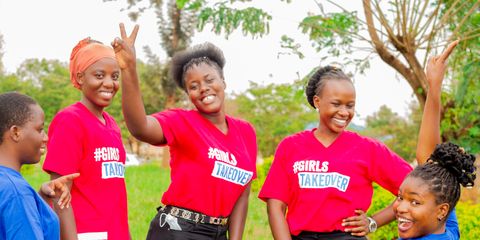Inspiring girls’ inclusion in education
Hellen’s journey into education at 14-years-old has raised community awareness of the importance of education for girls and is inspiring other families to educate their daughters as well.
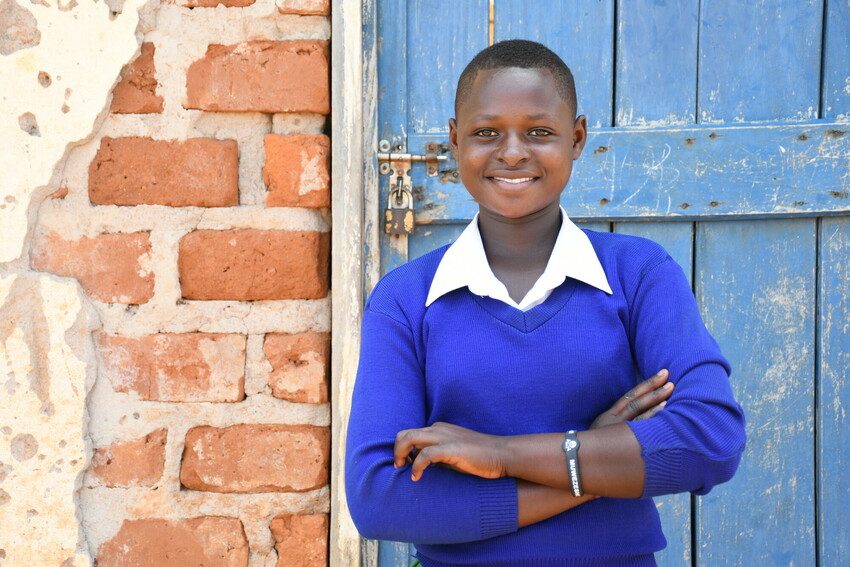
“I used to stand at the edge of the road every morning and watch my brothers and their friends go to school. I wanted to go too, but I thought school wasn’t for girls like me. My mother was preparing me for marriage and taking care of the family,” Hellen explains.
The importance of education for girls
Until the age of 14, Hellen had never been to school. She spent most of her days helping her mother with the household chores or working in the fields. Her family didn’t see the importance of educating girls, feeling it was a waste of time and money as girls are married off when they reach adolescence and soon after become mothers.
After attending community meetings about keeping adolescent girls in school, and listening to the project staff’s messages, Hellen’s parents gradually started to understand the importance of education for girls. Over time, they became more open to the idea of letting Hellen attend school and finally agreed that she could be enrolled.
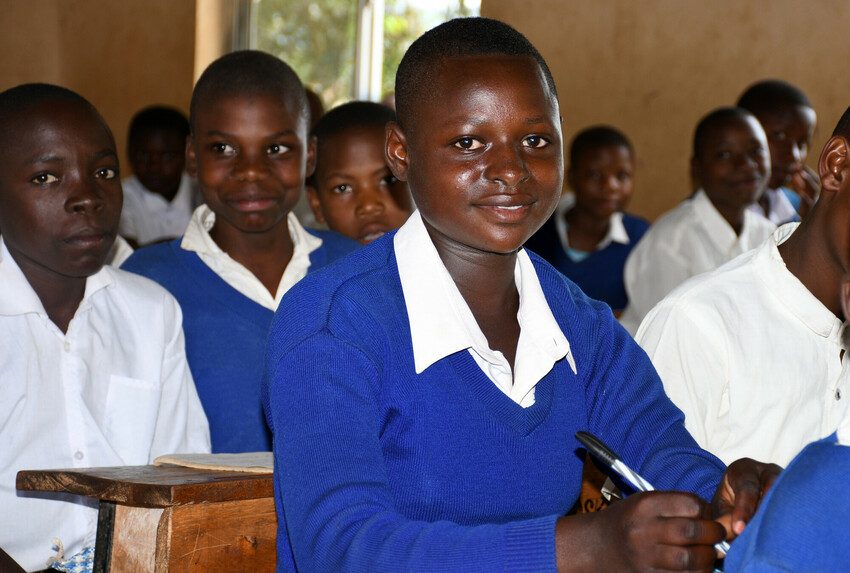
“I never thought my parents would change their minds about marrying me off. They finally allowed me to go to school, just like the boys,” says Hellen.
A route into education
Local project staff and education officers helped with Hellen’s enrollment process at primary school where she joined a community-based programme that provides basic education to out-of-school children aged 8 to 18, providing them with a route back into the formal education system.
“I am happy to finally be starting school for the first time in my life. I now have the chance to pursue my education and become a teacher.”
Hellen
“I am happy to finally be starting school for the first time in my life. For years, I had dreamt of the opportunity to enter the classroom and learn, but I never thought it would be possible. I now have the chance to pursue my education and become a teacher,” shares Hellen happily.
Hellen’s family say they have started to see a positive change in their daughter since she started school and are proud of her achievements. Hellen’s story has become an inspiration for other families in their village with 13 other families now allowing their daughters to go to school.
Plan International supported Hellen as she began her studies, providing her with a school uniform, learning materials and a bicycle to use to make the journey to school which is 4km away from her home.
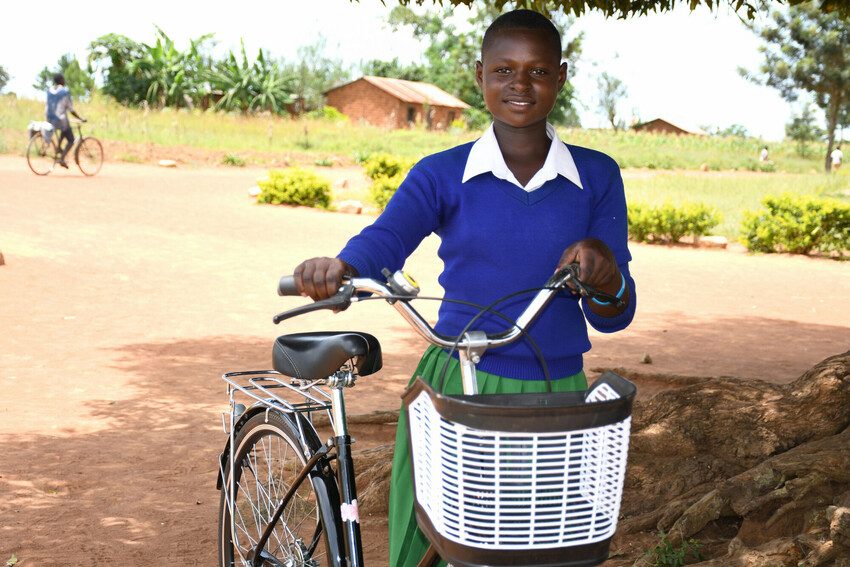
Barriers to girls’ education in Tanzania
Poverty is the greatest challenge to girls’ education in Tanzania. Only 27% of girls complete upper secondary school in Tanzania, and among the poorest children this falls to 6%.
Hellen is one of more than 1,400 out-of-school girls aged between 9-15 years old in Tanzania’s Geita and Kigoma regions who are being assisted by Plan International’s Keeping Adolescent Girls in School (KAGIS) project with the support of local government authorities.
The project raises awareness of the benefits and importance of education, particularly for girls, through community meetings and awareness sessions with adolescent girls and their families.
The project, implemented in collaboration with Rafiki Social Development Organisation with funding from Global Affairs Canada, provides girls with financial assistance to enable them to take part in non-formal education opportunities and access reproductive health education.
“For many years, girls in our community were left behind because their education was seen as less important than the dowry they could bring to their families. But with increased awareness, we are beginning to see a shift in attitudes. As a result, this January, we enrolled 14 new students into the complimentary basic education programme,” explains the ward education officer Mr Masayi.
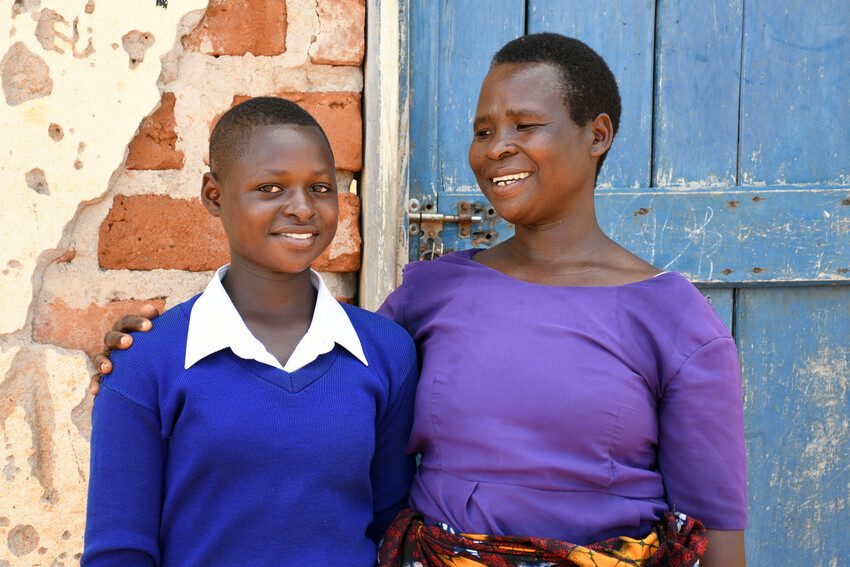
“This is a promising sign that our efforts to promote girls’ education is making a real difference. We still have a long way to go, but with continued advocacy and support, we can create a brighter future for all girls in our community,” concludes Mr Masayi.
In January 2023, a total of 521 adolescent girls were enrolled at complimentary basic education centers in Geita and Kigoma and started their education for the first time. Among them, the KAGIS project has supported 250 out-of-school girls with school supplies, uniforms, sanitary pads, and bicycles for those who live long distances from the centres.
Education, Out-of-school children
